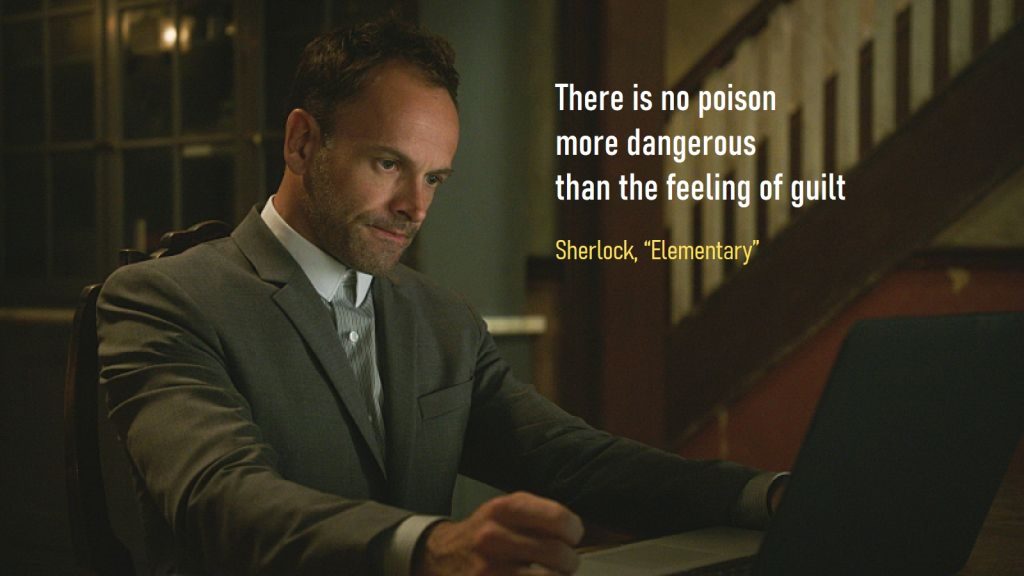How not to stop living in times of war? Discussing with Daria Selivanova
For all of us, war has already become a new reality. Now, there are almost no illusions that our lives will be the same, we just have to wait for the end of hostilities. The first shock and denial are gone. And they have been replaced by other questions: how can we continue to live, given that we live in a country at war? How should we structure our business, our communications with employees, and our loved ones, taking into account the new realities? And one very important question: is it possible to allow ourselves the usual joyful emotions when there is so much grief around?
In today’s article, we will talk about the answer to the last question. Specifically, how to balance feelings of guilt with continuing to live and having a good time, says Daria Selivanova, the Head of the Psychological Center “Don’t Panic”.

Survivor’s Guilt
First, let me tell you about the “survivor’s guilt”. The term first appeared after the World War II. Back then, people who had managed to make it through the concentration camps noted that they could not rejoice in that fact. Instead of the relief of having their lives go on, they felt guilt that others had died and they had managed to keep their lives.
Viktor Frankl, an Austrian psychiatrist and psychologist, Jewish by nationality, got into a concentration camp and managed to survive. All of his relatives were killed, which he discovered after he had been released from imprisonment. He was one of the first to speak about survivor’s guilt, his emotional experiences, and the feelings of the people surrounding him. This tragic experience served as the basis for creation of a whole new trend in psychotherapy, which has helped a huge number of people around the world. I highly recommend his book “A Psychologist Experiences the Concentration Camp”. It tells you how to find the strength and motivation to go on living, even if you have experienced tragic events, how to rethink and be able to accept what you have encountered.
Further, many experts have noted the “survivor’s guilt” by people who have experienced traumatic situations where other people have died. These can include plane crashes, natural disasters, terrorist attacks and wars. Psychologists now classify the “survivor’s guilt” as a type of post-traumatic stress disorder. It is some “blocking” in traumatic experiences and inability to do anything about the aggression in relation to what is happening, which is directed at oneself and turns into guilt.
Now, however, it is not just those who actually suffer from then post-traumatic stress disorder who may have guilt, but all of us. I think many people find themselves thinking that “this is no time to be happy”, “you cannot have rest”, “I’m useless and not helping others”. Many of our clients note that the war has affected their personal lives and sexual relationships as well. It is not clear whether they can go to a restaurant, go on vacation, or post happy pictures on social media.
The situation is also complicated by the fact that in our society it is quite a common habit of reproaching each other. So there is always the risk of encountering external condemnation, which is already painfully gnawing at you from the inside.
And another complicating factor is the potential opportunity to be in a safe place, where there is no active hostilities, or forced migration.

We have the right to move on with our lives. So where do we start?
The first thing I recommend to start with is some separation between what goes on inside of us and how we share it with the world. If we talk about the inner state, we definitely have the right to move on with our lives. Moreover, if we make a different decision, we are helping the enemy to defeat us. In times of war, a lot is done to intimidate and morally suppress. One of the goals of the invaders is to make us lose the will to live, become weak-headed and easy to control. It is important to remember that our soldiers are fighting now to preserve our lives and independence. And our right to continue living.
It is important to note here that activity and the ability to do something useful is directly related to whether or not we are able to fulfill our wishes. The more we do something pleasing to ourselves, the more we can then do something for others. We need to draw strength and energy from somewhere. Any battery, even the most powerful one, needs to be recharged. And such a “recharge” may well be something that brings us joy and pleasure.

I already foresee possible criticism and condemnation: how could it be? To continue living as if nothing happens? Where is the respect for those on the front lines? Where is the help? Where is the sympathy for those affected by war? We will return later to the question of “how to share with the world what is happening in our lives”. In the meantime, I would like to draw your attention to another fact. Indeed, if the one in any way does not participate in helping the country during the war – this is an attitude “it is no concern of mine” and “it has nothing to do with me”.
The more we do something pleasing to ourselves, the more we can then do something for others
However, in a situation of war it is simply impossible to “stay out of politics”. This is a time when choices have to be made in any case. To determine whether your home, your city, your country belongs to “your concern”. Where the boundary of your interests lies. Even if it does not affect you personally or even your family. And with this view, feelings of guilt can be quite justified. So it is important not only to “recharge” your battery, but also to help others. And it is important to find your own way to be as helpful to people and country as possible.
From being able to be useful – to beinf able to be reproach resistant
The best option is to do something that you can do best and in which you have professional success. And in this situation, the field does not matter at all. Are you an HR manager? Then you know how to communicate with a lot of people. Find a place where that might be needed. Are you a recruiter? Okay, so you know how to find the right people and work with a lot of information. Are you an HRD? Great! Then your management skills can come in handy. Do you enjoy social media? Great! You can work with an audience.
On the other hand, behind the feelings of guilt there may be the so familiar desire to “be good”
At once I remembered the situations when musicians played in bomb shelters or painters painted new portraits of Ukrainian cities in women’s appearances. Believe me, any activity can now work for the good of the country if you want to. Feelings of guilt can be just connected with the feeling that you could be doing something useful, but you are not. And then it is a reason to think about it and outline a vector for useful actions. Maybe just “donating” to the Armed Forces of Ukraine or reposting fund raising on social media is not everything you can do.
On the other hand, behind the feelings of guilt there may be the so familiar desire to “be good”. How often it is important for us to be approved and praised. All of us, indiscriminately. A year ago, it would have been unthinkable to imagine that the phrase “Russian warship go f*ck yourself” would be engraved on state postage stamps, to become a slogan of major companies and simply a symbol of the new times. But if an entire country allows itself to “stop tolerating, being impertinent and doing something “bad”, then should the fear of condemnation remain an example of virtue at the level of individuals? I would like to make this a kind of motto: “Our state was able to do it, you can do it too!” The reproach resistant is a new stage of development, towards which it is high time to move.

Share with the desire to “give”
Now about sharing with the world what is happening. For one thing, ignoring military reality is wrong. If your social media feeds are no different before and after February 24, it is likely that the point about personal responsibility and contributing to help the country is not yet fully palpable to you. Smiling photos from your travels or entertainment can indeed be irritating and judgmental to those who are having a hard time.
On the other hand, it seems to me that it is not the photos that evoke these emotions, but the message with which they are published. And if that message is “to attract attention”, “to show your coolness”, “to assert yourself at the expense of a beautiful picture”, then it is very likely to cause aggression and a desire to criticize you. In essence, all these interactions can be characterized as a desire to “take something from the audience”. If you share something with a desire to “give”, however, it is unlikely to provoke outrage. In fact, it was the same before the war. But now there is more of black and white. And if before that your actions could simply be ignored, now the reaction is more likely to be said out loud.
I would also like to say that it does make sense to share some joys with those who can and want to be happy for you. Perhaps these are some specific people, rather than “everyone in general”.
I will say a couple more words about this: if you feel that the person who is criticizing is you, then it is worth reflecting on why you are blaming others? Perhaps now you need to recharge, but cannot allow yourself to do so? Perhaps someone close to you has died, and so you are experiencing the loss? Perhaps you want to be more helpful to your country, but do not dare or cannot find the uniform? In essence, the reproach contains the same aggression, but it is no longer directed inward, as guilt, but to those surrounding you. But this aggression also has its reasons. And it is important to be able to notice them.
And finally, I would like to remind that reproach resistance must be trained. If the state could, then you can too 😉 I wish you a happy, joyful and productive life under the new difficult military conditions.

Useful materials:
Recruiter’s psychological health: why is it especially important?